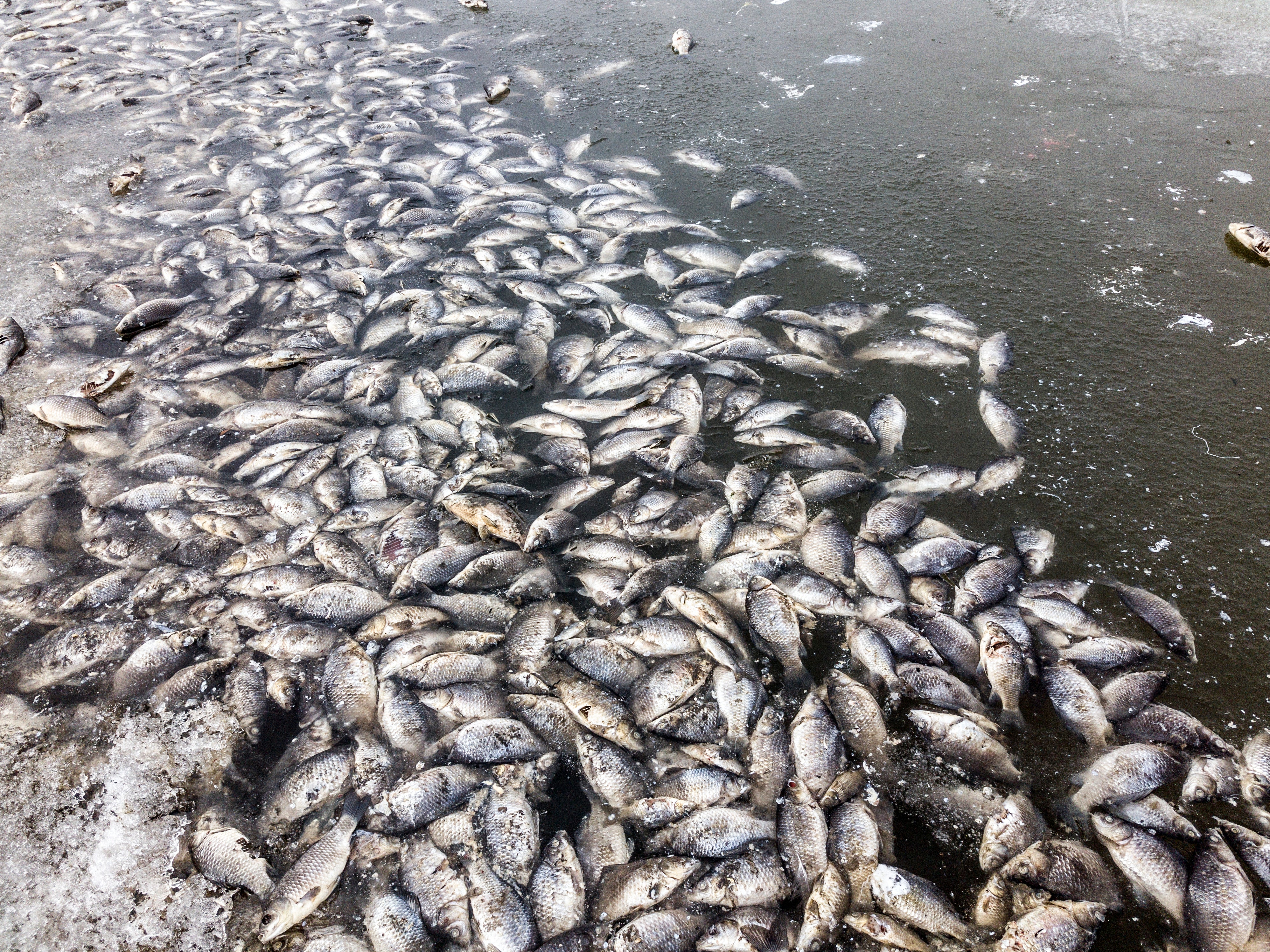Climate crisis to supercharge ‘lethal’ lake heatwaves, study says
Rising emissions will drive longer and hotter lake heatwaves, which have been linked to the mass die-off of fish, scientist says

The climate crisis could cause “dramatic increases” in the frequency and intensity of lake heatwaves across the world, a new study finds.
Akin to a heatwave on land, “lake heatwaves” occur when a body of freshwater is subjected to unusually high temperatures for a sustained period of time. Such events can cause severe damage to freshwater ecosystems and have been linked to the mass die-off of fish.
The new study finds that, if future greenhouse gas emissions are very high, average lake temperatures globally could be around 1.7C hotter during heatwaves by the end of the century, when compared to the period between 1970 and 1999.
In addition, the global average length of lake heatwaves could increase by a factor of 12, the study says, from around eight days in the late 20th century to 95 days by 2100.
However, meeting the world’s goal of limiting global temperature rise to below 2C above pre-industrial levels would help to stem the expected increases, according to the research, which is published in the journal Nature.
Under a scenario where future global warming is limited to below 2C, average lake temperatures during heatwaves are projected to be 0.3C hotter by 2100, compared with the period between 1970 and 1999. Meanwhile, the global average duration of lake heatwaves is expected to increase by three times to 27 days.
Lead author Dr Iestyn Woolway, a research fellow at the European Space Agency’s Climate Office in the UK, told The Independent: “We show, for the first time, that heatwaves also frequently occur in lakes, and that these are very sensitive to climatic variations.
“Under future climate change, our projections demonstrate that lake heatwaves will become progressively worse, particularly under a high greenhouse gas concentration scenario.”
For the study, the researchers used temperature data derived from satellites to study how more than 700 lakes across the world are already being affected by heatwaves.
The researchers then used climate models to explore how the intensity and duration of lake heatwaves could change throughout the rest of the 21st century.
The scientists explored changes to lake heatwaves under several different scenarios for future climate change.
These ranged from a scenario where global warming is kept to below 2C (which is known as RCP2.6) to a scenario where future greenhouse gas emissions are very high (which is known as RCP8.5).
In addition to looking at changes to frequency and duration of lake heatwaves, the scientists also explored possible changes to seasonality.
At present, most lake heatwaves occur in the summer. However, the research finds that, even under a low emissions scenario, lakes could experience heatwaves that last through multiple seasons, said Dr Woolway.
“Our simulations suggest that while lake heatwaves typically occur during summer within the present climate, they will extend across multiple seasons in the near-future, and in some cases, last the entire year, with some lakes reaching a permanent heatwave state,” he said.
Increases in the frequency and duration of lake heatwaves could cause severe impacts for both ecosystems and people, Dr Woolway added.
“The increased severity and duration of lake heatwaves under climate change have already exposed aquatic organisms to novel and, in some cases, lethal conditions, leading to an increased risk of mass mortality events, such as fish die-offs,” he said.
“This can have a dramatic influence, for example, on local communities that depend on fisheries as a nutritional and economic resource.”
The findings reinforce the urgent need to tackle action to tackle the climate crisis, he added: “Ultimately, lake temperatures follow the temperatures of the atmosphere.
“As global temperatures continue to rise, we expect lake heatwaves to become more intense and longer lasting. Reducing greenhouse gas emissions must remain at the forefront of our agenda.”
Join our commenting forum
Join thought-provoking conversations, follow other Independent readers and see their replies
Comments

Bookmark popover
Removed from bookmarks